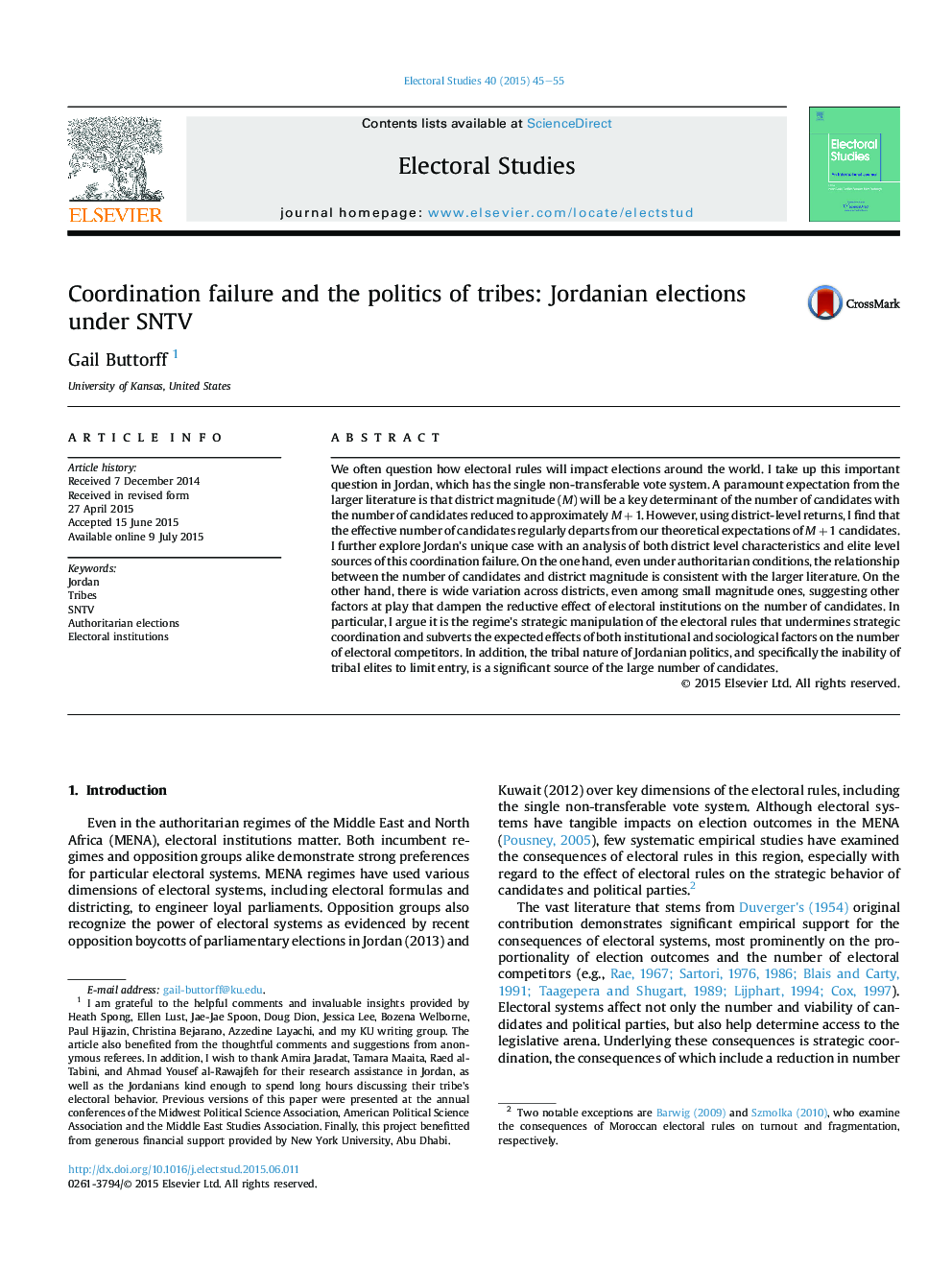| کد مقاله | کد نشریه | سال انتشار | مقاله انگلیسی | نسخه تمام متن |
|---|---|---|---|---|
| 7463804 | 1484953 | 2015 | 11 صفحه PDF | دانلود رایگان |
عنوان انگلیسی مقاله ISI
Coordination failure and the politics of tribes: Jordanian elections under SNTV
دانلود مقاله + سفارش ترجمه
دانلود مقاله ISI انگلیسی
رایگان برای ایرانیان
کلمات کلیدی
موضوعات مرتبط
علوم انسانی و اجتماعی
علوم اجتماعی
جغرافیا، برنامه ریزی و توسعه
پیش نمایش صفحه اول مقاله

چکیده انگلیسی
We often question how electoral rules will impact elections around the world. I take up this important question in Jordan, which has the single non-transferable vote system. A paramount expectation from the larger literature is that district magnitude (M) will be a key determinant of the number of candidates with the number of candidates reduced to approximately MÂ +Â 1. However, using district-level returns, I find that the effective number of candidates regularly departs from our theoretical expectations of MÂ +Â 1 candidates. I further explore Jordan's unique case with an analysis of both district level characteristics and elite level sources of this coordination failure. On the one hand, even under authoritarian conditions, the relationship between the number of candidates and district magnitude is consistent with the larger literature. On the other hand, there is wide variation across districts, even among small magnitude ones, suggesting other factors at play that dampen the reductive effect of electoral institutions on the number of candidates. In particular, I argue it is the regime's strategic manipulation of the electoral rules that undermines strategic coordination and subverts the expected effects of both institutional and sociological factors on the number of electoral competitors. In addition, the tribal nature of Jordanian politics, and specifically the inability of tribal elites to limit entry, is a significant source of the large number of candidates.
ناشر
Database: Elsevier - ScienceDirect (ساینس دایرکت)
Journal: Electoral Studies - Volume 40, December 2015, Pages 45-55
Journal: Electoral Studies - Volume 40, December 2015, Pages 45-55
نویسندگان
Gail Buttorff,